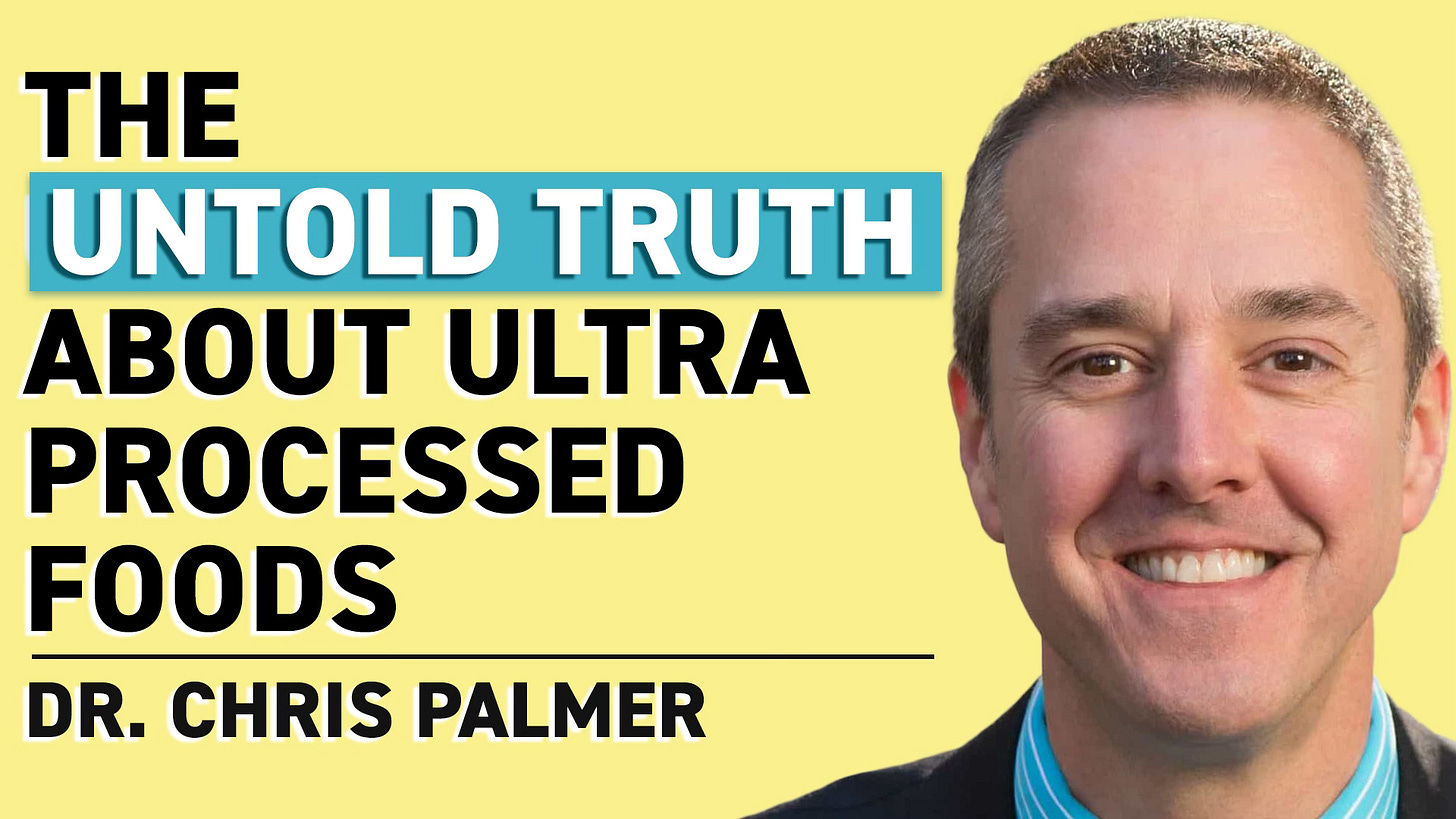EXHALE COFFEE | Ridiculously healthy coffee works well for me.
Use code FREETRIALSARAH for your free trial here
Many of you might recall my conversation earlier this year with Dr. Chris Van Tulleken on the rise of ultra-processed foods and the significant health concerns they pose.
Here’s a sobering statistic: 93% of Americans have at least one abnormal biomarker of metabolic health, and 50% are prediabetic. In Great Britain, we’re not far behind.
With so much of the population affected by metabolic syndrome, isn’t it striking that our mental health is also in decline? And what about the fact that rates of Autism have quadrupled over the past 20 years? I believe this intersection between mental and physical health is not explored nearly enough.
Today, I’m joined on the podcast by Dr. Chris Palmer for a conversation that shines a light on the profound—and sometimes surprising—impact of metabolic health on mental well-being.
With nearly 30 years of experience, Dr. Palmer’s work centers on the idea that mental and metabolic health are deeply connected. He’s a pioneer in this field, using science-backed approaches like the ketogenic diet to treat psychiatric disorders and highlighting how reducing ultra-processed foods can transform mental health.
In this episode, we explore how metabolic health impacts our brain function and mental well-being, challenging traditional approaches to treating mental illness. Chris shares fascinating insights into how conditions like depression, anxiety, and even schizophrenia might be improved through metabolic interventions. We also discuss the controversial topic of psilocybin in mental health treatment and delve into the complex relationship between trauma, metabolism, and mental health.
Dr. Palmer’s groundbreaking research and message of hope are captivating and essential for anyone struggling with—or curious about—mental health conditions.
About Dr Chris Palmer:
Dr. Chris Palmer is a Harvard psychiatrist and researcher who is revolutionizing our understanding of mental health treatment. His groundbreaking work on the metabolic theory of mental illness, detailed in his book "Brain Energy," offers new hope for those who haven't found success with traditional treatments. As both a clinician and someone who has experienced mental health challenges personally, Chris brings a unique and compassionate perspective to this vital conversation.
You can connect with Dr Palmer and learn more about his work here:
Website: www.chrispalmermd.com
Twitter: @ChrisPalmerMD
Instagram: @chrispalmermd
My personal insights and takeaways
Brain metabolism and mental health are linked
“All of the research that we've been doing for decades is finally...coming together that these disorders are metabolic in nature."Reflection: For almost 30 years, Dr Palmer has been studying the link between menthol health and metabolic health, making him a true pioneer in his field.
There’s always hope
"If you or someone you know is suffering from a severe chronic debilitating brain disorder...there is hope for you."
Reflection: Mental health conditions can leave the sufferers feeling helpless, but the results of recent studies are providing hope - there are new options emerging that can help.The power of lifestyle
"We can actually use very novel, unique interventions like changes in diet, or changes in exercise...and sometimes those solutions are counterintuitive."Reflection: Diet and exercise changes are more often associated with physical health, but their power extends well beyond this.
Your environment is key
"When a flower doesn't bloom, you fix the environment in which it grows, not the flower."Reflection: Creating a supportive and healthy environment is key to healing, and can improve the efficacy of lifestyle interventions.
A potential link between autism and metabolic health?
"The rates of Autism have quadrupled, and recent evidence over the last couple of years says that the rates are probably even higher than that now"Reflection: Studies show that gestational diabetes in mothers can significantly increase - potentially even double - the risk of autism in a child. More research on the metabolic health of pregnant women and how it relates to the development of conditions such as this is crucial.
Your diet has a role in your mental health
“There's not a one size fits all diet."Reflection: Although dietary changes have been shown to help with mental health conditions, it’s important to take an individualised approach.
Obesity and mental health struggles are connected
"I think about obesity as a metabolic disorder, that it is a disorder of cell function."Reflection: Obesity and mental health conditions are intrinsically linked and can exacerbate one another, but it's important to view obesity as a metabolic disorder and not simply a failure of willpower.
Trauma changes your brain
"Trauma impacts human metabolism”Reflection: The "fight or flight" response associated with trauma leads to significant metabolic changes in your body, including increased heart rate and blood sugar levels. As well as the immediate effects, however, these changes can also result in long-term consequences for brain health
Living well really will help you be well
"Living well is actually not as hard as it sounds...if we do live well, we can actually make ourselves be well."Reflection: I’ve known this for a long time - living well will help you be well - but it’s always a thrill to hear new evidence supporting this, especially from key figures such as Dr Palmer.
Psychedelics are complex
"Psilocybin can increase neuroplasticity...but if that bad experience gets reinforced, you can actually come away from it worse."Reflection: The use of psychedelics to support mental health is a topic that has been in the zeitgeist recently, but it’s clear that this should be approached with extreme caution as it could potentially do more harm than good. Studies show that A bad bad trip from hallucinogens may increase the risk of developing schizophrenia 20 times.
Inspired to boost your brain health?
Then don’t miss out on a FREE bag of Exhale coffee - ridiculously healthy coffee that’s been scientifically proven to contain compounds that support a healthy brain and help with memory, cognition and neuroprotection.
As well as your brain health, it’s also been shown to support your gut, help improve your mental performance and reduce stress levels. Not only that, Exhale coffee is absolutely DELICIOUS and they also have decaf options if you’re cutting back on caffeine.
Head to the website here to find out more about the incredible health benefits of Exhale Coffee, and grab your free bag using the code FREETRIALSARAH.
Let us know what you think of this week’s episode - I love hearing from you!






